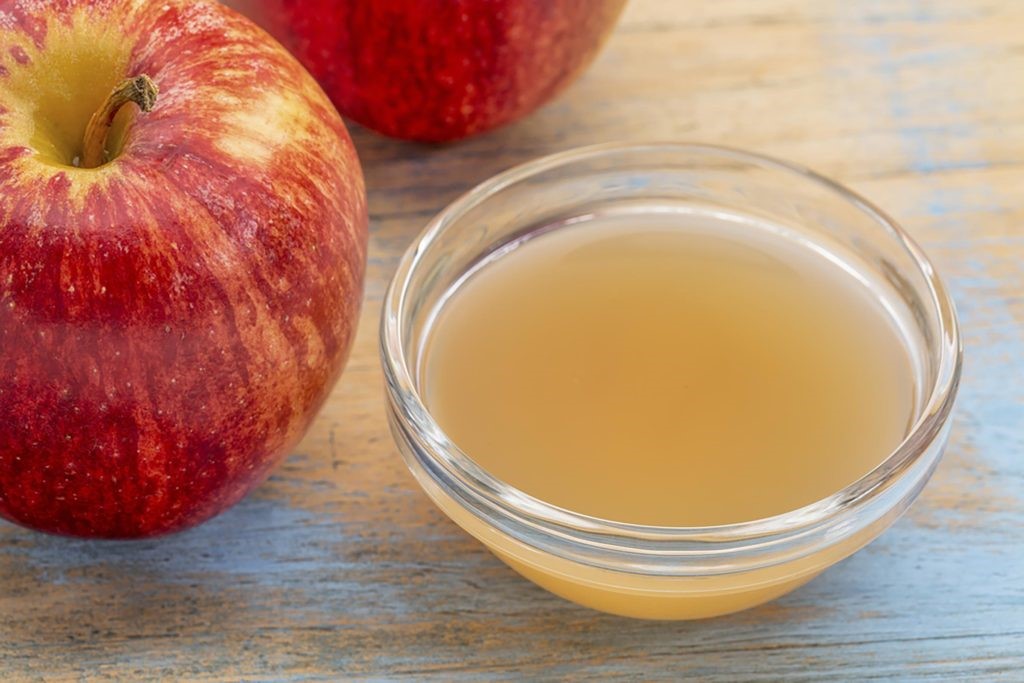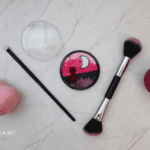We hope you love the products we recommend! Just so you know, Trendy Mami may collect a share of sales or other compensations from the links on this page.
–
Apple cider vinegar (ACV) isn’t just a shelf-warmer in the back of your pantry. This fermented apple juice has been a culinary staple for centuries, adding a tangy depth to marinades, salad dressings, and sauces. But its uses extend far beyond the kitchen!
ACV has gained popularity as a natural home remedy, with potential benefits whispered about online and passed down through generations. From potentially lowering cholesterol to combating bad breath (and let’s not forget the hard-water-fighting claims your husband mentioned!), the range of uses is impressive.
Intrigued by these possibilities, especially while on my recent health kick, I decided to delve deeper into the world of ACV. While it’s important to remember that ACV isn’t a magic potion that cures all, it can be a valuable addition to your routine. Let’s explore the different ways you can incorporate this versatile vinegar into your life!
Characteristics of Apple Cider Vinegar
Just what is apple cider vinegar, anyway? As the name suggests, it’s a type of vinegar made from fermenting apples. You can find it in the grocery store in the same aisle as white vinegar, but if you can wait a few weeks for the fermenting process you can easily make it yourself with this recipe using just apples, sugar, and water.
In fact, it’s better to make your own apple cider vinegar or at least buy the raw, unfiltered organic version. Grocery store apple cider vinegar is distilled and purified, thus removing the all-important “mother”. The mother is a thick, brownish film that contains the “good” bacteria, which in turn creates acetic acid. The mother is also packed with antioxidants and probiotics which are important to healthy living.
That’s not to say that the purified one is useless. Many people use it for household cleaning instead, as it then won’t leave any filmy residue, not to mention that it’s cheaper than the organic version. Others use it as a beauty remedy, such as a hair rinse or in the bath.

Benefits of Apple Cider Vinegar
There are a staggering number of health benefits in using apple cider vinegar. Before I continue however, let me stress that there’s a proper way to use it.
Some may think that all they have to do is knock back a shot. Don’t do that! Like any vinegar, the apple cider one is extremely acidic, and drinking a large quantity straight may burn your esophagus and erode your tooth enamel over time. Instead, dilute it by mixing two tablespoons with eight ounces of water. Add some honey to sweeten because well, it doesn’t taste great.
Just what exactly can drinking this type of vinegar do for you? Here’s just a small list.
- Weight loss: If you drink it right before eating, the acetic acid helps block starch digestion, which means that it won’t be turned into calories.
- Aids in digestion: Another bonus to drinking some of it diluted prior to eating is that it’ll help settle your stomach.
- Boosts your energy: If you need a pick-me-up during the day, drink this vinegar. The potassium and enzymes help combat fatigue.
- Sore throat: Gargling with a 1:1 ratio of water to apple cider vinegar can help stop a sore throat in its tracks.
- Clear sinuses: Apple cider vinegar helps break up mucus while the potassium decreases the chance of getting a runny nose.
Other Uses
You don’t have to drink apple cider vinegar to reap its benefits. Some people use it as part of their beauty routine or even to clean their home.

1. Dandruff removal:
Apple cider vinegar (ACV) might be a surprising dandruff fighter! The vinegar’s acidity helps change the scalp’s pH balance, making it harder for yeast to grow. This yeast can contribute to dandruff flakes. Here’s how to try an ACV rinse:
- Mix equal parts water and ACV in a spray bottle.
- Spray the mixture directly onto your scalp.
- Wrap your hair in a towel and let it sit for 15 minutes.
- Rinse your hair thoroughly.
- Repeat this process twice a week.
Remember: It’s always a good idea to check with a doctor before using any new home remedies, especially if you have sensitive skin or any scalp conditions.
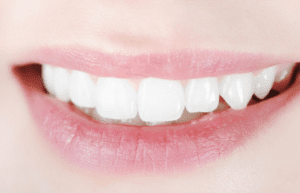
2. Teeth whitener:
While some sources recommend using apple cider vinegar (ACV) as a teeth whitener, it’s important to weigh both sides before trying it. Here’s a breakdown:
Potential Benefit:
- Acidity: ACV’s acidity might help loosen and remove surface stains on teeth, leading to a temporary lightening effect.
Here’s how to use apple cider vinegar as teeth whitener:
- Mix one part apple cider vinegar to two parts water.
- Swish around your mouth.
- Brush teeth as normal.
Important Considerations:
- Enamel Erosion: The same acidity that loosens stains can also erode tooth enamel, the hard outer layer protecting your teeth. Weaker enamel can lead to increased sensitivity and cavities.
- Limited Evidence: There’s little scientific evidence to support ACV’s effectiveness for teeth whitening, and many dentists actually advise against it.
- Safer Alternatives: There are many safe and effective ways to whiten teeth, like toothpaste with whitening ingredients or dentist-approved whitening strips.

3. Stinky feet remedy:
Apple cider vinegar (ACV) might help fight foot odor! The vinegar’s acidity can help kill bacteria that contribute to stinky feet. Here’s how to try an ACV foot soak:
- Mix equal parts water and ACV in a basin.
- Soak a small towel in the mixture.
- Wipe your feet thoroughly with the vinegar-soaked towel.
Remember: ACV can be a bit strong, so dilute it with water and avoid soaking your feet for too long. If you have any cuts or open wounds on your feet, skip the ACV soak and try another remedy.

4. Skin toner:
While some people use diluted ACV as a toner, there are a few things to consider:
Potential Benefit:
- Astringent properties: ACV’s acidity can act as an astringent, helping to tighten pores and remove some surface oils.
Here’s how to use apple cider vinegar as a toner:
- Soak a cotton ball in the stuff and wipe your face with it.
Important Considerations:
- Sensitive Skin Irritation: ACV can be harsh and irritate sensitive skin, causing redness, dryness, or burning.
- Disrupts Natural Balance: The acidity can disrupt your skin’s natural pH balance, potentially leading to dryness or breakouts.
Alternatives: There are many gentle and effective toners available that are specifically formulated for different skin types.
Recommendation:
Before trying ACV on your face, it’s best to do a patch test on a small area of your skin, like your inner arm. Wait 24 hours to see if there’s any reaction. If your skin feels irritated, skip the ACV toner and choose a gentler option.

5. Remove drain clogs:
Got a pesky drain clog slowing things down? Apple cider vinegar (ACV) can be a natural hero! Here’s how it works:
- Grab some baking soda. Pour a ½ cup down the drain.
- Next, add some muscle – pour in 1 cup of ACV.
- The mixture will fizz and bubble – that’s the magic happening! Let it sit for about 15 minutes.
- Finally, flush the drain with hot water to clear everything out.
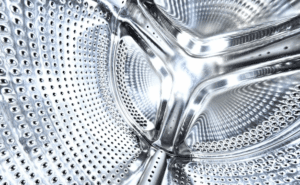
6. Washing machine:
Apple cider vinegar (ACV) is a surprising multi-tasker! We already saw how it can tackle everything from stinky feet to dandruff. But did you know it can also help clean your washing machine?
Here’s a simple trick:
- Grab two cups of ACV.
- Pour it into your empty washing machine.
- Run a regular wash cycle – no clothes needed!
The vinegar helps remove soap scum and mineral buildup that can build up inside your machine over time. This can help your washing machine run more efficiently and keep your clothes smelling fresh.
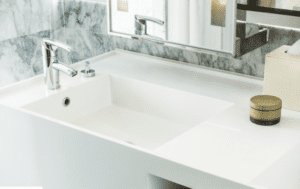
7. Disinfect germy bathroom surfaces:
Apple cider vinegar (ACV) keeps surprising us with its uses! Did you know it can also be a natural disinfectant for your bathroom?
Here’s how to put ACV’s cleaning power to work:
- Grab a bottle of full-strength ACV.
- Pour or spray some vinegar directly on your bathroom surfaces like the toilet, sink, and tub.
- Give it a good scrub with a brush or sponge. The vinegar will help kill germs and leave things sparkling clean.
Remember: Since vinegar is acidic, it’s not a good idea to use it on natural stone surfaces like granite or marble. For those surfaces, stick to regular bathroom cleaners.

8. Polish silver:
Got tarnished silver jewelry or silverware? ACV can help! Just mix ½ cup ACV with 2 tablespoons of baking soda. Soak your silver items in the mixture for a few hours. The tarnish will magically disappear! Just rinse your silver well when you’re done.

